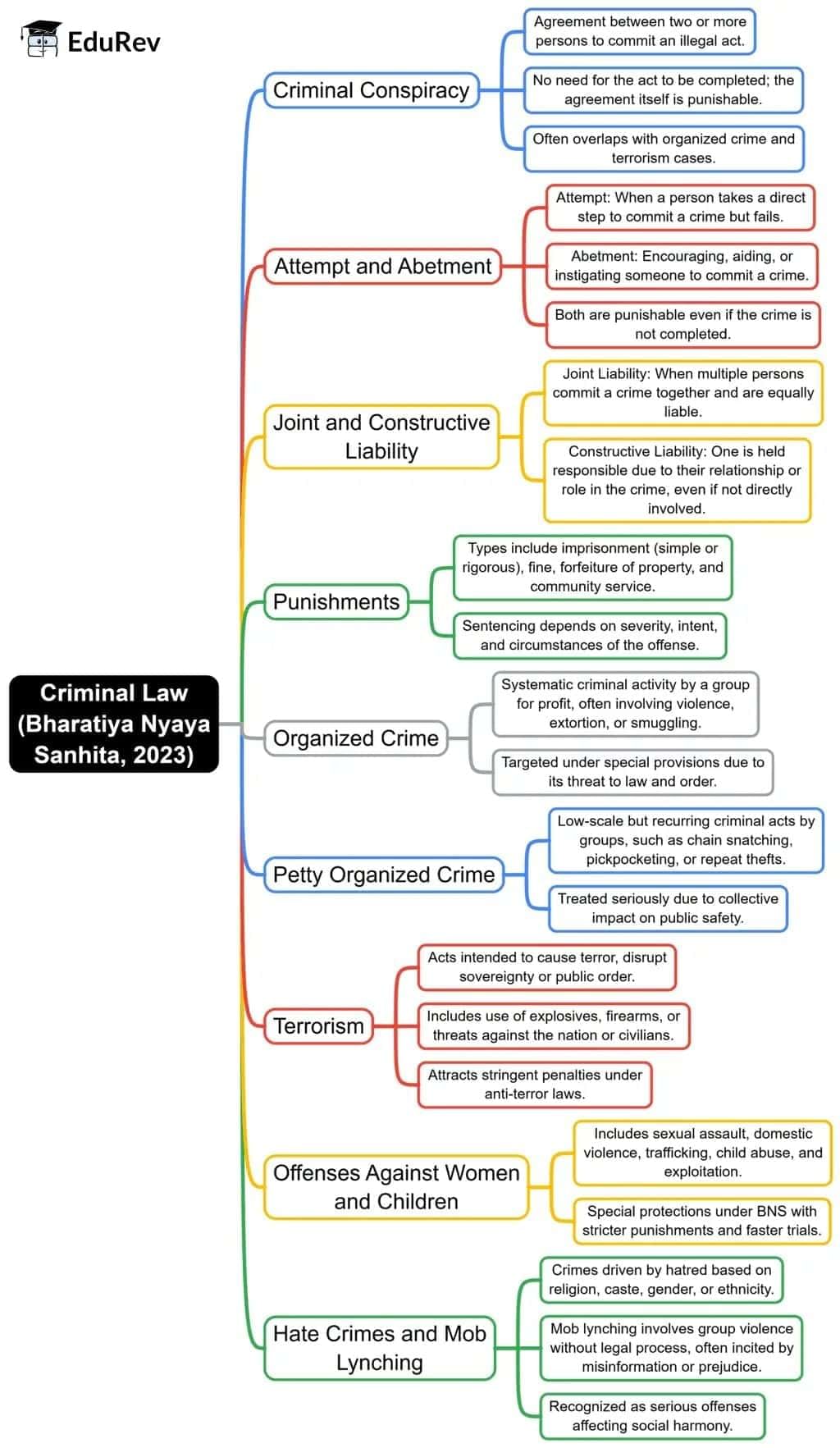CLAT Exam > CLAT Notes > Legal Reasoning for CLAT > Mind Map: Criminal Law (BNS, 2023)
Mind Map: Criminal Law (BNS, 2023) | Legal Reasoning for CLAT PDF Download
Criminal Law (BNS, 2023)-1

Criminal Law (BNS, 2023)-2

The document Mind Map: Criminal Law (BNS, 2023) | Legal Reasoning for CLAT is a part of the CLAT Course Legal Reasoning for CLAT.
All you need of CLAT at this link: CLAT
|
63 videos|167 docs|38 tests
|
FAQs on Mind Map: Criminal Law (BNS, 2023) - Legal Reasoning for CLAT
| 1. What are the primary objectives of criminal law? |  |
Ans. The primary objectives of criminal law include maintaining public order, protecting individuals and property, deterring criminal behavior, rehabilitating offenders, and ensuring justice through fair trial processes.
| 2. What are the essential elements that constitute a crime? |  |
Ans. The essential elements that constitute a crime typically include the actus reus (the physical act), mens rea (the mental state or intent), and causation (the link between the act and the harm caused). All three elements must generally be present for an action to be classified as a crime.
| 3. How does the legal system differentiate between felonies and misdemeanors? |  |
Ans. The legal system differentiates between felonies and misdemeanors based on the severity of the offense. Felonies are more serious crimes that typically result in harsher penalties, such as imprisonment for more than one year, while misdemeanors are less serious offenses that usually carry lighter penalties, such as fines or imprisonment for less than one year.
| 4. What defenses can be used in criminal law cases? |  |
Ans. Common defenses in criminal law cases include self-defense, insanity, duress, entrapment, and alibi. Each defense has specific legal standards and requirements that must be met to be successfully argued in court.
| 5. How does the principle of double jeopardy apply in criminal law? |  |
Ans. The principle of double jeopardy prohibits an individual from being tried twice for the same offense after either an acquittal or a conviction. This legal principle is designed to protect individuals from the stress and expenses of multiple trials for the same alleged crime.
Related Searches
















